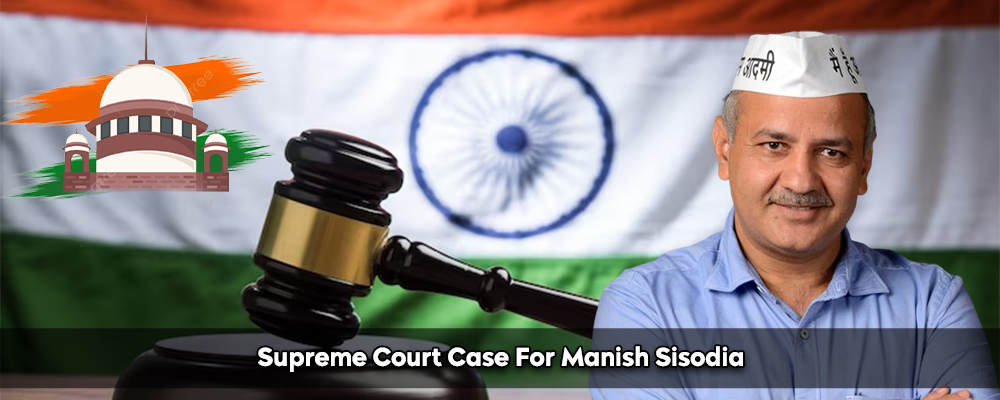A momentous legal breakthrough occurred when the Supreme Court of India denied bail applications made in the context of money laundering proceedings by renowned politician and Aam Aadmi Party (AAP) founder Manish Sisodia. The move has shaken the political landscape and sparked discussions about what it means for Sisodia’s political prospects as well as the broader context of Indian politics.
Facts of the Case
- The CBI detained Mr. Sisodia on February 26, 2023, in connection with his suspected involvement in the Delhi liquor scandal. After interviewing him in Tihar Jail on March 9, 2023, the Enforcement Directorate took him into custody in connection with a money laundering case related to the CBI’s First Investigation Report.
- The arrest relates to allegations of corruption during the 2021–2022 implementation of the now-cancelled Delhi liquor policy. Section 120 B of the IPC (criminal conspiracy), Section 477 A of the IPC (intent to deceive), and Section 7 of the Prevention of Corruption Act were the grounds for Sisodia’s detention.
Need A Legal Advice
The internet is not a lawyer and neither are you. Talk to a real lawyer about your legal issue

Major Contentions Raised by Manish Sisodia’s Lawyer
- Sisodia’s defense team contended that the CBI’s case under the Prevention of Money Laundering Act did not contain any allegations of bribery on him in the underlying offense.
- Furthermore, it was emphasized that Sisodia could not be detained in the absence of a trial, despite having 500 witnesses and more than 50,000 papers.
- Additionally, they asserted that a year-long, organizational, multi-layered decision-making process produced the liquor policy.
- According to Sisodia’s lawyer, the policy was decided upon transparently following discussions and the Lieutenant Governor’s consent.
- According to his lawyer, ED made a mistake in asserting that the liquor policy caused prices to rise. Instead, he claimed, the costs that were given to clients dropped.
- It was alleged that Manish Sisodia had no financial trail discovered.
- Contrary to what the ED said, Sisodia wasn’t attempting to tamper with the evidence by throwing away a cell phone. Ministers changed their phones, according to Sisodia’s attorney. The mobile phone was thrown away prior to the case being filed.
Decision by the Supreme Court
- The Supreme Court denied bail to Manish Sisodia in cases including corruption as well as laundering of money that is linked to the purported Delhi excise scandal in policies. The SC’s decision concerned the two distinct cases that the CBI and ED had brought against the perpetrator Manish Sisodia in connection to the purported policy scandal.
- The judges further claimed that although they are rejecting the bail application now, they would like to draw attention to their assurance that the trial would not last beyond six to eight months. Therefore, in case that the trial goes slowly or carelessly, Manish Sisodia will have three months in his hand to again request for bail with a bail application.
Public Debates on the Supreme Court’s Order
- The denial of Manish Sisodia’s bail requests also calls into question the public’s opinion of politicians and the veracity of their campaign pledges. The public debates emphasize how important it is for public leaders to follow their own moral principles and moral precepts. When politicians and political parties pledge to uphold transparent and clean governance, they should be held accountable to the same norms they publicly support.
The Party of Aam Aadmi will have to tread carefully through these choppy waters in light of Sisodia’s legal issues’ possible political ramifications. To keep the confidence of the voters who put the party in power, its leaders must be watchful in preserving their dedication to openness and moral leadership in both words and deeds.
This order by the Supreme Court calls into question the Aam Aadmi Party’s legitimacy, Sisodia’s political future, and the wider ramifications for Indian politics. It also acts as a reminder of how crucial it is to permit the legal system to operate impartially and freely.
One can talk to a lawyer from Lead India for any kind of legal support. In India, free legal advice online can be obtained at Lead India. Along with receiving free legal advice online, one can also ask questions to the experts online free through Lead India.





 Talk to a Lawyer
Talk to a Lawyer